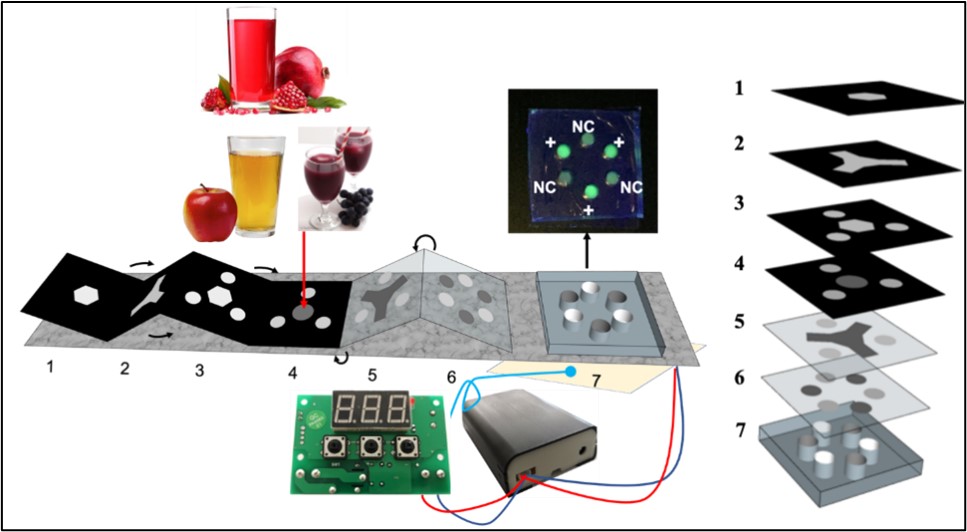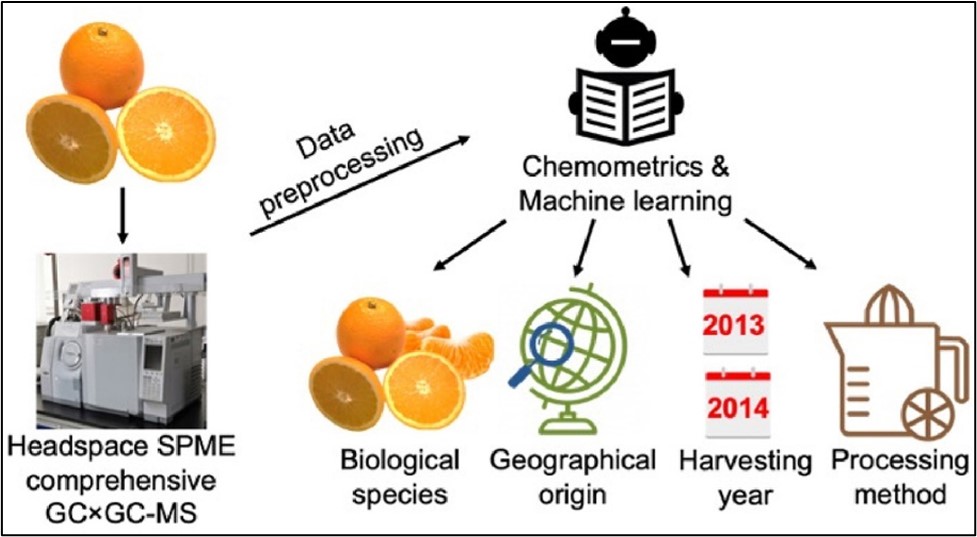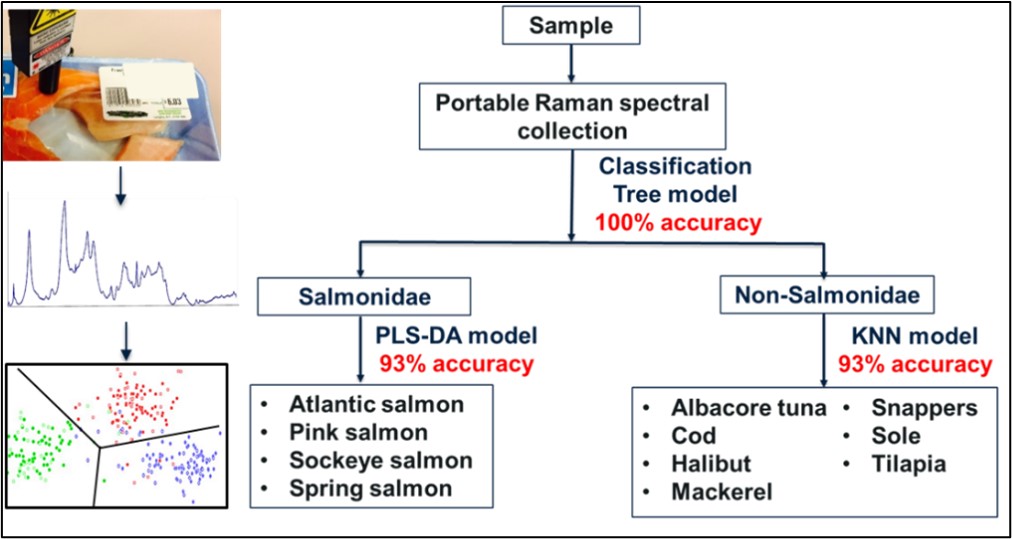Food authenticity is an important issue concerned by food integrity. Current analytical methods are typically complicated, low throughput, and solvent- and energy-consuming, in contrary to the current initiatives towards greener and more sustainable chemistry and analytical chemistry.
In the FACT lab, we aim to develop authentication tools using techniques that are environmentally friendly and sustainable. These analytical methods aim to minimize the use of hazardous chemicals, reduce waste, and conserve resources while ensuring accurate and reliable identification of food items. The goal is to authenticate food products—such as confirming their origin, purity, and safety—using approaches that have a minimal environmental footprint.
Technical skills involved:
- Green analytical chemistry
- Vibrational spectroscopy
- Mass spectrometry
- Nucleic acid-based testing
- Microfluidic “lab-on-a-chip”
- Bioinformatics
- Data science (machine learning, database)
Examples:

Authentication of pomegranate juice using a microfluidic device based on isothermal DNA amplification (https://doi.org/10.1021/acssensors.0c00786)

Authentication of orange juice using solvent-free HS-SPME-GCXGC-MS (https://doi.org/10.1016/j.talanta.2020.121038)

Authentication of fish species using rapid and non-destructive Raman spectroscopy (https://doi.org/10.1016/j.greeac.2023.100052)